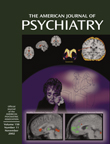To the Editor: I would like to report on the use of the antidepressant mirtazapine for the treatment of nightmares characteristic of severe posttraumatic stress disorder (PTSD) and of the insomnia that accompanies these nightmares. The group under consideration consists of more than 300 patients treated at several community clinics serving refugees in the Chicago metropolitan area. While these refugees come from many different parts of the world, including Southeast Asia, Bosnia, Kosovo, several African nations, and Latin America, they are united in having experienced catastrophic stress levels. These patients have experienced one or more of the following: wartime violence and witnessing death as combatants or civilians, detainment in prison camps or concentration camps, physical and psychological torture, including the persistent threat of death, and for women, repeated sexual assault, usually by representatives of governmental and paramilitary forces.
Often the exposure to trauma and terror has extended over a period of years. The patients are frequently retraumatized during the exodus from their native countries. While these patients usually exhibit the entire range of symptoms characteristic of PTSD, it is the pervasive disturbance of sleep by nightmares that so often stands in the way of healing. We have found mirtazapine especially helpful in mitigating these symptoms by suppressing nightmare activity or in blocking the memory of the dream state upon awakening. Consequently, sleep becomes restorative and patients have more psychic energy for combating the daytime symptoms of PTSD. While exact figures are not yet available, I estimate that of more than 300 patients treated, approximately 75% have reported improvement due to reduction of the frequency and intensity of nightmares. A substantial minority of these patients have reported a total absence of dreams related to the traumatic events.
Although such patients are often treated with multiple medications, typically a selective serotonin reuptake inhibitor and an anxiolytic, it was not until mirtazapine was introduced as part of the treatment regimen that the dramatic reduction in nightmares occurred. Reports of side effects are extremely rare. The excessive drowsiness and weight gain sometimes reported by patients taking mirtazapine for depression almost never occur when this drug is used to treat severe PTSD. Certainly, carefully planned research to test these findings is necessary. However, it was felt important to report the positive result of this use of mirtazapine for this disorder, given the devastating effects of the nightmares and sleeplessness caused by catastrophic stress.

